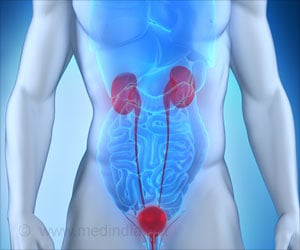In patients with chronic kidney disease, a low-sodium diet may be beneficial to prevent the decline in kidney function and improve heart health.
- Chronic kidney disease is a progressive loss of the kidney function
- Dietary sodium restriction reduces albuminuria (albumin in urine) in patients with chronic kidney disease
- The combination of a drug called paricalcitol and a low sodium diet resulted in the lowest albuminuria levels in patients
Low-Sodium Reduces Residual Albuminuria
A team of researchers from The University Medical Center Groningen, in Netherlands, studied two interventions that have demonstrated the potential for reducing residual albuminuria. The two interventions are dietary sodium restriction and a drug called paricalcitol that activates the vitamin D receptor.At the end of the clinical trial, the researchers found that dietary sodium restriction significantly reduced residual albuminuria and blood pressure. However, the drug paricalcitol had no significant effect on these measures. The researchers noted that the combination of a low-sodium diet and paricalcitol resulted in the lowest albuminuria levels.
“What we found was that sodium restriction provided a relatively large beneficial effect, whereas the effect of paricalcitol was small. Thus, the impact of the combined intervention was largely due to the protective effect of sodium restriction,” said Dr. de Borst.
According to the World Health Association, an average person can consume 2 grams of sodium per day. But, most of the people consume twice as much as the recommended intake.
“In our study, patients consumed on average 4 grams of sodium per day, which is well in line with global trends in sodium consumption among CKD patients,” said Dr. de Borst.
The article, entitled, “The effect of vitamin D receptor activation and dietary sodium restriction on residual albuminuria in chronic kidney disease: the ViRTUE-CKD randomized controlled trial,” appear in an upcoming issue of the Journal of the American Society of Nephrology (JASN).
- About 10 % of the world’s population have CKD, which claims millions of lives every year due to poor access to treatment.
- One in 3 Americans is at higher risk of developing kidney disease. About 26 million Americans suffer from some form of kidney disease.
- China and India are estimated to have the highest number of kidney failure patients.
- The two major causes of CKD are high blood pressure and type 2 diabetes.
- Men with kidney disease are more likely to progress to kidney failure
- A protein that defines the melanoma blueprint - (https://www.eurekalert.org/pub_releases/2016-11/cndi-apt111616.php)
- Kidneys - (https://www.kidney.org/news/newsroom/factsheets/FastFacts)
- Global Facts: About Kidney Disease - (https://www.kidney.org/kidneydisease/global-facts-about-kidney-disease)
















